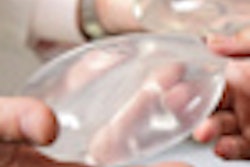
LONDON (Reuters) - When Amanda Harrison had her breasts enlarged in 2006, the results gave her the confidence she had lacked since bullies teased her at school about her flat chest.
She now believes her self-esteem came at a terrible cost -- years of mystery illnesses that left her weak, depressed, and unable to cope with daily life.
Harrison, now 40, is one of about 250 British women who are suing for compensation after being fitted with suspect breast implants from a French company that shut down in 2010.
The silicone gel implants, made by Poly Implant Prothese (PIP), appear to have an unusually high rupture rate and fears about possible health risks are spreading.
About 300,000 PIP implants, which are used in cosmetic surgery to boost breast size or replace lost breast tissue, were sold worldwide before PIP went bust last year. French investigators also found the company had used a cheap industrial-grade silicone to fill some of its implants.
"It makes me feel disgusted," Harrison told Reuters in a telephone interview from her home in Ramsgate, in southeast England.
"It's sick that they could even think about putting this stuff into a human. You wouldn't even put it in an animal. It's (like) mattress filler, isn't it?" she said.
Harrison was happy with her implants for the first two years, but in 2008 she fell ill with the first of what turned out to be a long series of debilitating illnesses.
Over the next three years, she says she suffered from shooting pains in her chest and under her arm, difficulties breathing, excruciating neck and back pain, and other symptoms that doctors could not explain.
She says she was repeatedly hospitalized and off work for weeks at a time. She left her job as an advertising sales manager because she felt unable to cope.
Rupture
Earlier this year, tests revealed that one of her breast implants, which were made by PIP, had ruptured.
She had the implants replaced and her symptoms improved, although she still has problems she says her surgeon suspects are linked to silicone seeping into her breast tissue.
Since then, she has researched the PIP scandal and is one of hundreds of British women seeking compensation from their clinics through the courts.
"These clinics said for example that (the implants) would last for 10 years, or in some cases that they would last for life, and that they couldn't possibly leak," said Mark Harvey, the women's lawyer.
"So when they were given these implants which we now know did rupture, didn't last 10 years or more, (and) did leak, these were breaches of contract and they should have to pay compensation," he told Reuters from his office in the Welsh capital Cardiff.
A civil court there will decide in mid-January whether to admit the women's class-action suit.
Harrison, who still takes antidepressants and sleeping tablets after her run of health problems, said no amount of money would make up for the damage to her life.
"I can't get my health back ... I've got a young son that I can't even look after properly. I don't know what the future holds for me," she said.
By Estelle Shirbon
Last Updated: 2011-12-22 11:40:21 -0400 (Reuters Health)
Copyright © 2011 Reuters Limited. All rights reserved. Republication or redistribution of Reuters content, including by framing or similar means, is expressly prohibited without the prior written consent of Reuters. Reuters shall not be liable for any errors or delays in the content, or for any actions taken in reliance thereon. Reuters and the Reuters sphere logo are registered trademarks and trademarks of the Reuters group of companies around the world.


















